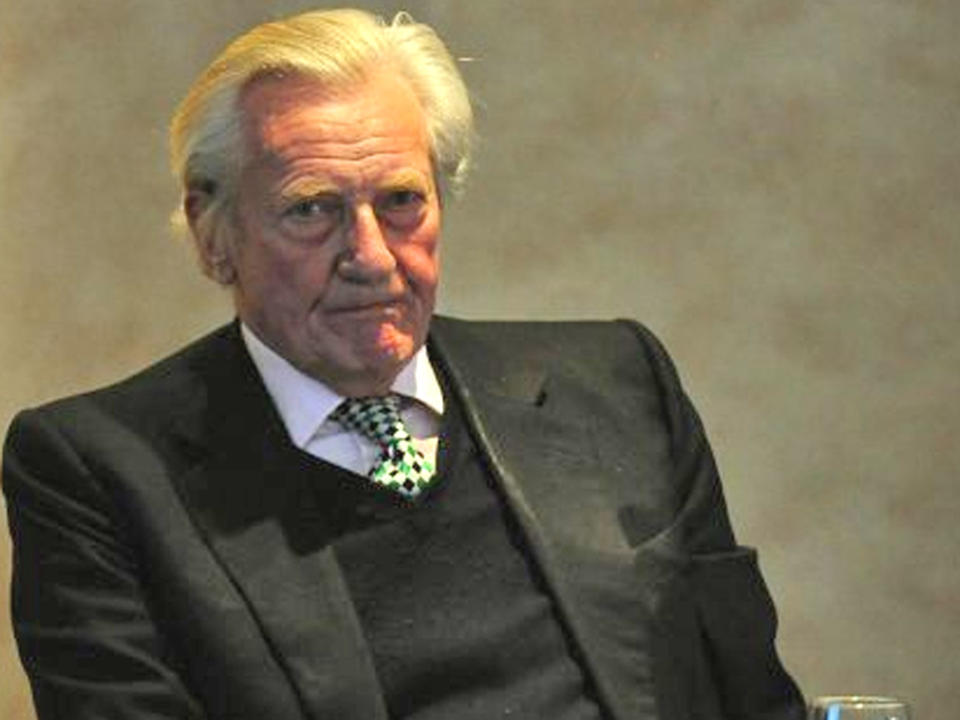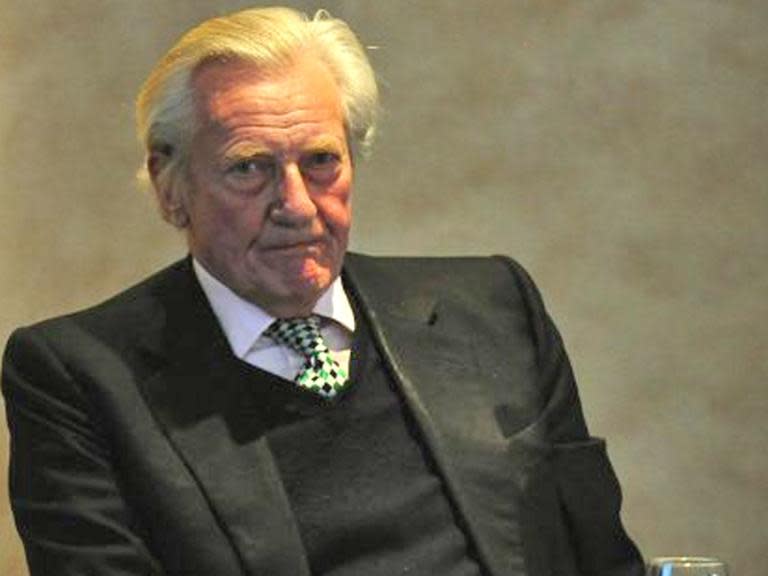Brexit: UK won't leave the EU and will one day join the Euro, says Lord Heseltine
Lord Heseltine has reiterated his belief the UK may not leave the European Union and that Brexit can be undone.
Despite the resignation of most other Europhile MPs to the fact that Brexit now appears inevitable, the former Conservative Deputy Prime Minister, said he believed the UK will one day adopt the Euro “when the time is right”.
He told LBC radio it was “very possible” the UK will never leave the 28-nation bloc, despite Article 50 being triggered in March and the Brexit negotiations now being well underway.
The Tory grandee, who famously challenged Margaret Thatcher for leadership of the party in 1990, told host Iain Dale he believes there will be a significant shift in public opinion and that Parliament could vote down the final withdrawal bill in 2019.
He said that by the next general election – which he believes will happen in around two years - “I think it’s very possible we won’t (have left)."
Asked why, he said: “Two things. One, that public opinion changes – which it hasn’t done yet – and secondly, that Parliament, which is the sovereign body of our country, just hasn’t got the stomach for it, so there will not be a majority for it, and a way will be found to upset the present Article 50 procedure.
He believes the EU will readily accept a sudden reversal of the leave decision, even at a late stage in the proceedings.
“They know perfectly well that we are a major part of the European economy, our economy is totally integrated with them, they are a major supplier, but the interesting thing about those statistics of course is that while 40 per cent of our trade goes to Europe – which makes us very dependent – but coming the other way, for any one country within Europe, the figures are dramatically smaller,” he said.
Even if the UK does end up leaving as scheduled in 2019, the country will rejoin in the future because the majority of younger people either voted to remain or did not vote in the referendum, he added.
"If you look at the age groups, the elderly voters are pro-Brexit, once you get down in the new voters, the middle ages and below, then they are very anti-Brexit.
“It’s a generational issue and that is not particular convenient for my party but yes I’m absolutely sure that in future generations the absolute, historic, inescapable fact of our relationship with Europe will bear in.”
Lord Heseltine was a prominent member of the cabinet during the Thatcher and Major years when arguments about Europe threatened to tear the party apart.
Once considered the “darling” of the party and a future leader, after throwing down the gauntlet to Mrs Thatcher in 1990, he stood aside after losing out to John Major in the second round.
He believes Euroscepticism began in “the late 1980s” partly because of the poor state of the economy and rising levels of unemployment coupled with the many EU-driven changes in regulation which affected small and medium sized businesses at the time.
“And Margaret, I think regrettably, instead of standing up for what she had done, said you know, it’s all these Brussels civil servants, always important to have an alibi, always got to be somebody to blame, and if you can have a foreigner, that’s even better. That’s when the mood changed, and that was the beginning of the situation that’s now developed.”
He said this 20-year-old tendency for some people to attach “blame” to the EU was exacerbated by the worldwide stock market crash of 2008.
“Since then, by and large, people have had frozen living standards… you get that and governments are unpopular, it always happens."
He expects the current Parliament to last for only around two years, in part because the Tory confidence and supply agreement with the DUP is set to last that long, and because public discontent usually peaks in the midterm of a government.
“It is predictable that all the opposition parties in Parliament have a self-interest to bring the government down …that is why I say the Conservative Party should face the prospect of an election in two years’ time.”
And he does not believe Theresa May will lead the Conservatives into the next election, as she has previously vowed to do – but he said he doesn't think a chance of personnel will be enough.
“It’s totally clear that the Brexit message will not win the next election for us”, he said. “So it’s not that I want to change the singer, I want to change the song.”


